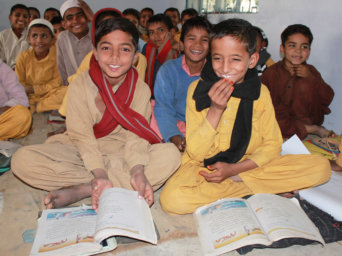- About
- Topics
- Picks
- Audio
- Story
- In-Depth
- Opinion
- News
- Donate
- Signup for our newsletterOur Editors' Best Picks.Send
Read, Debate: Engage.
| located: | Pakistan, Afghanistan |
|---|---|
| editor: | Shadi Khan Saif |
A refugee person -- in spite of all the reasons behind his or her refuge, remains an uprooted and dejected soul that remains reliant on the host society to a large extent.
It has been almost four decades since the first wave of hundreds of thousands of Afghans fled their country due to the Soviet invasion in the late 1970s. It was followed by even more war-weary refugees during the Taliban regime, and then during the civil war in the 1990s. And, for many Pakistan was a natural choice due to the geographical proximity, historical and cultural ties.
For those who do not remember this ordeal, they can very easily compare the state of the Syrian refugees with the Afghans. The policies of many host countries in the West and the Muslim world for that matter, kept the needy Syrians at bay, and it caught the media attention. But, as an old news story, not much attention is paid to the state of Afghan refugees facing constant persecution.
This week, the government of Pakistan announced a "stick-and-carrot" policy for around a million undocumented Afghan refugees. The policy -- announced by the Ministry of States and Frontier regions -- has apparently given a legal cover to the country’s security forces to "harass" refugees who lack documentation. "There is an offer for the Afghan nationals in the deal [...] this is a carrot-and-stick approach. If Afghan nationals get themselves registered, they will not be harassed by police," Lt Gen (rtd) Abdul Qadir Baloch, the federal minister for states and frontier regions was quoted as saying by local broadcaster Dawn News on Thursday.
The growing persecution has already forced up to a million refugees to flee back to their conflict-riddled country. The Human Rights Watch (HRW) in a report on alleged forced returns of Afghan refugees, has urged Islamabad to avoid recreating conditions in 2017 that coerced the involuntary return of refugees to Afghanistan in 2016.
